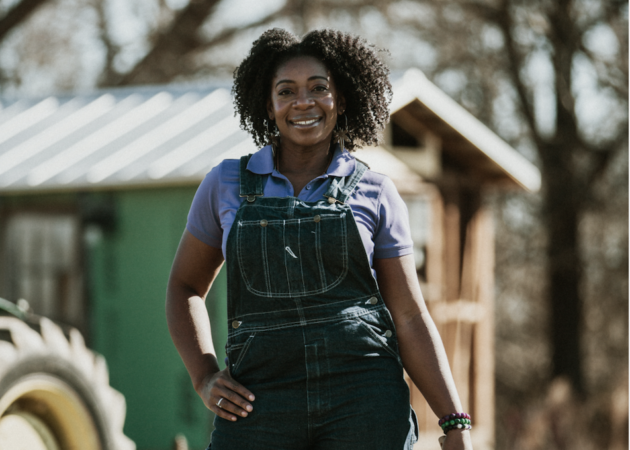Hemp may be a super plant but access to the crop for Black farmers is still an everyday struggle.
“Farming is still very much white-male dominated,” said Clarenda “Farmer Cee” Stanley of Green Heffa Farms in an email interview with AfroTech.
There aren’t a lot of women in the farming space, let alone Black women, specifically when it comes to medicinal plants so people like Farmer Cee understand firsthand the obstacles Black people face when it comes to not only growing but seeing a profit from the hemp plant.
So, what exactly is hemp?
“Hemp is Cannabis sativa, the same plant that THC rich cannabis aka “weed” [comes from],” shared Farmer Cee. “They have different chemotypes for the most part although there are some hemp cultivars that are higher in THC as well. In addition to being the consummate medicinal plant, it has tremendous industrial applications from biofuel to plastics to fiber.”
Industrial applications that Joseph Fordyce Jr. aims to take advantage of through his company, Knock On Hemp.
View this post on Instagram
“When I saw that hemp was used as a building material way back and can be used as a building material now, it was a no brainer to the endless possibilities that the plant can be used for,” said Fordyce in an interview with AfroTech. “It can replace wood in every way and so I looked at hemp as having that same viability in our future and decided to build with hemp and ways to supply it on my own.”
At Knock On Hemp, the mission is to show others the benefits of hemp and how to confidently use it for substitutes from products that actually cause more harm than good.
For Farmer Cee, although hemp can be beneficial, she stresses the importance of consumers having knowledge of where their cannabis comes from.
“If they cannot see evident signs of equity and commitment to environmental sustainability in the brand, then they should assume that the products are garbage — not the recyclable kind,” she said.”
Farmer Cee also stresses a common misconception that society has on the plant that continues to rise in popularity — the plant cannot be grown well by the “consciously corrupt capitalists who dominate the space.”
Knock On Hemp’s Fordyce says that a connection back to the community is key.
“I think it’s so important to make real connections back to our community to make sure that no matter how we’re growing and [where] we’re going, that we’re including others so that they can include others and we can continue to pay it forward,” Fordyce said.
Editorial Note: Portions of this interview have been edited for clarity.


